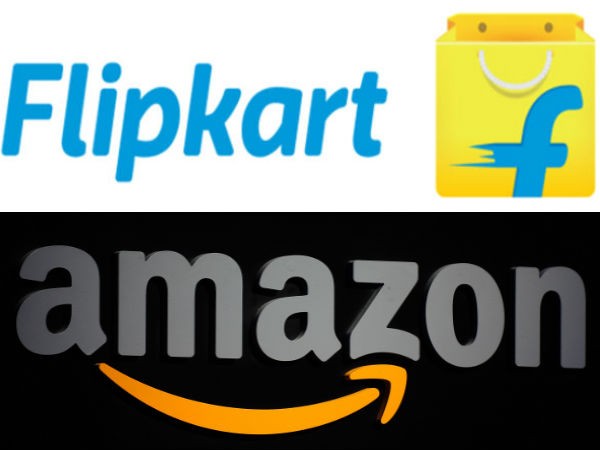
Amazon is beginning the four-day Great Indian Sale on 20 January, the latest iteration of the ecommerce platform’s popular online shopping extravaganza. Around the same time, rival Flipkart is kicking off the three-day Republic Day sale. During these sales, buyers will be able to avail discounts and special offers on various products and categories, such as smartphones, consumer electronics, fashion, home & kitchen, large appliances and daily essentials, to name a few. In terms of the timing, these special sales come just before the new guidelines for foreign direct investment (FDI) in e-commerce firms get implemented from February 1. Could this be the swansong of these sales as we know it?
In December, the Department of Industrial Policy Promotion (DIPP) of the Ministry of Commerce and Industry rolled out the final guidelines for the functioning of ecommerce websites and marketplaces in India. There have been clarifications since, but this simply means significant changes await the e-commerce platforms such as Amazon India and Flipkart, to name a few, over the horizon. It is still not clear whether e-commerce companies such as Amazon and Flipkart will get any extension to comply with the changes in policy.
Do the new guidelines change anything for us, as consumers? Potentially yes, because this could mean that the attractive discounts on online shopping platform as we know them, could make the proverbial walk into the sunset. Here is everything you need to know about the new guidelines.
The biggest change that the new guidelines bring to the table are that online marketplaces will now have lesser influence on the prices of certain products being sold on the platform. Offline sellers, brands and brick-and-mortar stores have long complained that online marketplaces offer significantly higher discounts which they cannot match because of the differences in cost structures. Online marketplaces do tend to have an advantage of reduced costs (such as no expenditure on floor rentals etc.) compared with physical stores. In addition to discounts, online marketplaces also offer various other schemes as well, such as cashbacks, freebies and more. The new changes, depending on how they are implemented, could potentially significantly restrict ecommerce players in terms of the schemes, sales and freebies that they offer with products being sold on their website. Online stores are now required to offer a level playing field to all players on their platform, in terms of value additions such as cashbacks and quicker delivery options.
The fact that ecommerce companies such as Amazon and Flipkart, will now have lesser say in the attractive pricing for products on their platform, could significantly impact sales. At least in the short term. Online stores have for long attracted buyers with the promise of lower prices than those which brick and mortar retail stores or other vendors could offer.
This could also have an impact on the exclusive deals that shopping websites do with brands, from time to time. “Ecommerce marketplace entity will not mandate any seller to sell any product exclusively on its platform only,” say DIPP in the official press note 2. At present, for instance, Flipkart has the exclusive agreement to sell the Microsoft Surface Go while Amazon is primed for the exclusivity to sell the upcoming Samsung M-series affordable Android smartphones which will compete against the popular Xiaomi Redmi phones.
It will be interesting to see how this clause impacts certain products sold on ecommerce platforms such as Amazon and Flipkart. For instance, Amazon sells its wide range of Alexa smart assistant enabled Echo devices on its platform, as it also does in physical stores such as Croma retail. A lot of in-house brands have come up over the years, which offer consumers products at a slightly lower cost than many of its rivals. Initially there were some fears about how the new guidelines would impact these brands, hurting profitability and margins. For instance, Flipkart has an in-house electronics brand called MarQ, and they sell televisions, soundbars, washing machines, air conditioners, kitchen electronics, refrigerators and more, and pricing makes them enticing as a value proposition for potential buyers. However, the government has since come out with a clarification to assuage fears, “Concerns have been raised that Press Note 2/2018 prohibits sale of private label products through the marketplace. It is clarified that present policy does not impose any restriction on the nature of products which can be sold on the marketplace.”
Online marketplaces will also not be able to sell products on their platform, in which they own a stake. For instance, Amazon has stake in two major sellers on the platform, Cloudtail and Appario. If both sellers are unable to sell products on the platform, profitability could take a significant hit. And also make the online shopping experience less enticing for buyers, considering the range of devices available would have reduced. The only option will be to offload the stake in these entities, to retain the product line-up on the platform in accordance with the new rules.
In terms of after sales and warranty, the new guidelines mandate them as responsibility of the seller. However, the ambiguity could still very much persist. Let us take this example—you buy a product on Flipkart and the order is fulfilled by a Flipkart partner called XYZ. Now, for the buyer, the seller in this case could very well be Flipkart. However, Flipkart could be within its rights to say that it is the responsibility of XYZ, who fulfilled the order. This hypothetical situation could very well play out regularly, much to the chagrin of consumers.
All these changes, as dictated by the new policy, could require the likes of Amazon and Flipkart to renegotiate their contracts with all their partners and vendors, to comply. There are still a few days for the implementation of the new guidelines for shopping websites and ecommerce partners. While there will be no wholesale rule changes now, we could still see some new clarifications closer to the date, to sort out potential policy doubts or features.


.jpeg)

